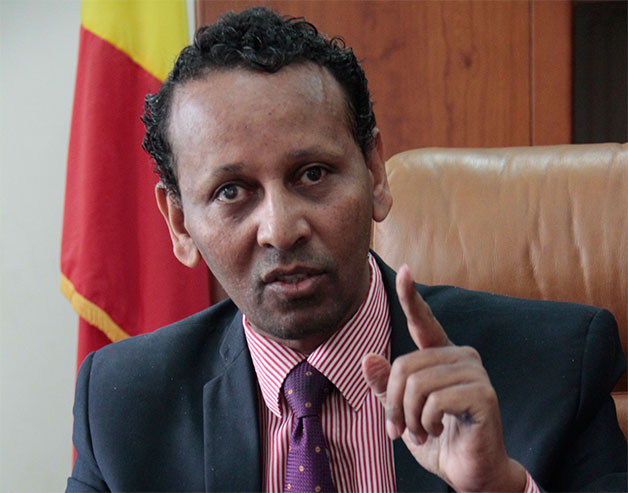
Radar | Sep 21,2019
Sep 2 , 2023
By BERSABEH GEBRE ( FORTUNE STAFF WRITER )
In a bid to address the existing incompetence and lack of professionals in the hotel and tourism sector, the Ethiopian Hotel & Tourism Employers Federation has called for the development of specialised training programs following a study released last week.
The study revealed a mismatch between available trained professionals and the demand from the hotel sector while indicating that the quality of training offered by some institutions is subpar.
The Federation is contemplating establishing a private hotel and hospitality centre as part of its five-year strategic plan developed by an independent consultant Alemseged Woldeyes. He said the Centre would offer specialised training programs that are tailored to the needs of the industry including front and back-of-house operations, customer service and languages.
According to Alemseged, the Federation aspires to expand its presence to an additional 15 providing opportunities for hoteliers to network and share experiences which would in turn help improve the quality of service.
The Ethiopian Hotel & Tourism Employers Federation is a consortium of 19 associations and 350 direct hoteliers. It was established five years ago and held a public-private sectorial dialogue last week.
State Ministers for Tourism, Labour & Skills and the Country Director of the International Labour Organization attended the meeting while hoteliers concurred with the study findings and expressed concern about the lack of skilled workers and the need for better training programs.
Security concerns and inadequate advertisement were indicated as threats to the tourism sector by Bezabih Tiruneh who represented the Bahirdar Hotel Owners Association. The limited access to finance, high turnover of employees and shortage of foreign currency were indicated as other impediments.
Financed by GIZ, the study ranked Ethiopia sixth compared to seven countries including Tanzania, Mauritius, Uganda, and Kenya. In 2019 the seven-year-tourism receipts put Ethiopia at 554 million dollars which is significantly lower than Tanzania's 2.17 billion dollars.
There are 17,000 registered hotels across the country. The attendees re-elected Fitih Woldesenbet (PhD) to head the Federation while appointing Haile Gebersilase, a renowned athlete and owner of Haile Resorts to oversee.
"With a large amount of forex flows through hotels, the sector should be supported through access to loans with much lower interest rates," said Fitih. He called for action from the government which is a major contributor to the economy, which created 1.9 million jobs worldwide in 2019 according to the study refers to the World Travel & Tourism Council (WTTC) reports.
In 2019, the government launched a tourism master plan that aims to increase tourism revenue to 10 billion dollars by 2025. The development of specialised training programs is one of the key strategies for achieving this goal.
The government's role in improving the tourism sector was further highlighted through the presentation. While acknowledging the feedback constructed from stakeholders, officials opted to dwell on the data sources in the making of the study.
"It's better to use local data instead, "said Selsehi Girma.
Meanwhile, Teshale Berecha, state minister for Tourism, the government has been working to modernise the human resources following the feedback constructed from stakeholders.
"We couldn't do it without the partnership," he said.
Despite sharing the same concerns with the others, Yitbaerk Hailu from the Harar Hotel Owner Association stressed the human capital in the sector. He highlighted the knowledge gap observed among the trainers as well.
Experts believe the development of specialised training programs is a long-term investment that will pay off. By investing in training, a skilled workforce that will help the tourism sector and contribute to the economy can be created.
Lud Abiy who previously worked at the Addis Abeba Hotel Owners Association and currently serves as a consultant observes the gap is widened as trainees focus on the theory part and miss that hospitality service needs to be practised.
While she believes the sector needs constant improvement, Lud suggests that it is a two-way street where employers provide training and workers show willingness to learn.
"The sector requires constant update," said Lud.
PUBLISHED ON
Sep 02,2023 [ VOL
24 , NO
1218]

Radar | Sep 21,2019

Commentaries | Nov 29,2020

Radar | Mar 30,2019

Radar | Oct 03,2020

Radar | Nov 23,2019

Fortune News | Apr 13,2019

Money Market Watch | Sep 28,2024

Fortune News | Nov 29,2020

Viewpoints | Sep 10,2023

My Opinion | Dec 10,2018

Dec 22 , 2024 . By TIZITA SHEWAFERAW
Charged with transforming colossal state-owned enterprises into modern and competitiv...

Aug 18 , 2024 . By AKSAH ITALO
Although predictable Yonas Zerihun's job in the ride-hailing service is not immune to...

Jul 28 , 2024 . By TIZITA SHEWAFERAW
Unhabitual, perhaps too many, Samuel Gebreyohannes, 38, used to occasionally enjoy a couple of beers at breakfast. However, he recently swit...

Jul 13 , 2024 . By AKSAH ITALO
Investors who rely on tractors, trucks, and field vehicles for commuting, transporting commodities, and f...

Oct 18 , 2025
The political establishment, notably the ruling party and its top brass, has become p...

Oct 11 , 2025
Ladislas Farago, a roving Associated Press (AP) correspondent, arrived in Ethiopia in...

Oct 4 , 2025
Eyob Tekalegn (PhD) had been in the Governor's chair for only weeks when, on Septembe...

Sep 27 , 2025
Four years into an experiment with “shock therapy” in education, the national moo...